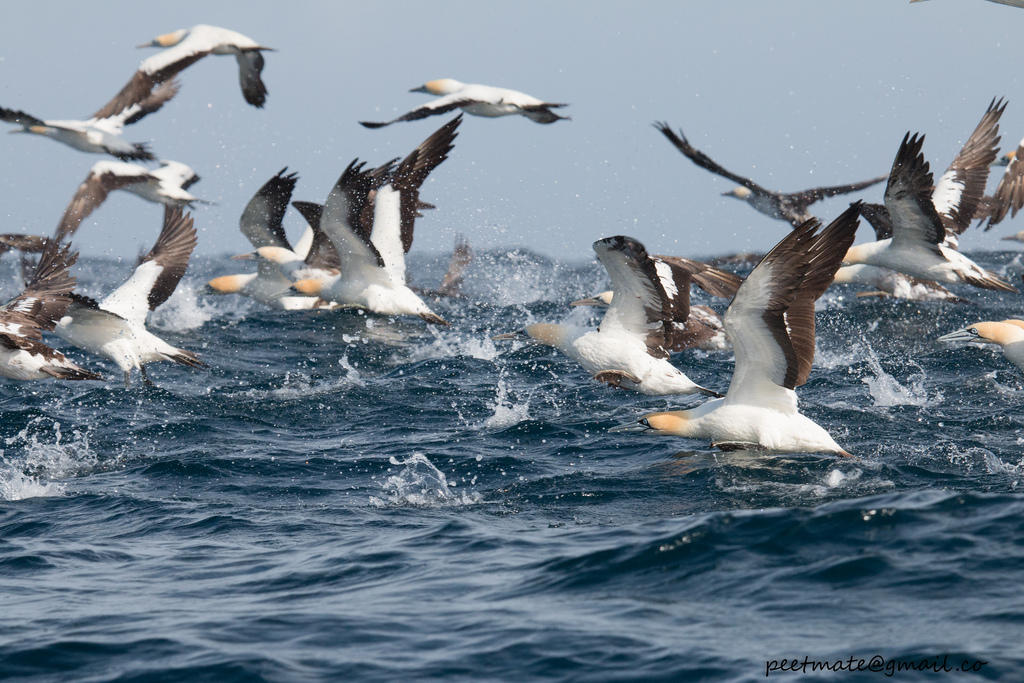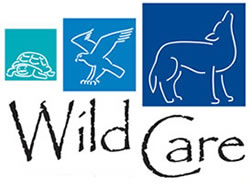
An Avian Mystery: Sick, Dying Seabirds Washing Up on Cape Cod Beaches
By KATE BLAUER • JUN 15, 2017

Large seabirds typically found off the coast of Quebec have been washing up on Cape Cod beaches during the past few months. They’re gannets; and they’re arriving at local wildlife centers in critical condition, or already dead.
Wildcare in Eastham has treated more than twenty gannets since May. Officials there say it is odd that gannets would show up on Cape beaches – sick or otherwise — because they’re typically breeding far out at sea this time of year.
Local wildlife officials are trying to figure out why a seabirds are washing up onto Cape Cod beaches sick or dead.
The center initially ran tests to rule out the possibility of avian influenza. But Wildcare’s Jennifer Taylor says the birds’ symptoms indicate a different kind of infection.
“Seabirds being washed up and being on land is all wrong,” Taylor said. “They weren’t water proof. Their body condition wasn’t bad. They would come in kind of fat and healthy looking, but they would die the next day.”
Wildcare consulted with the United States Department of Agriculture about the deaths. That agency also concluded that the birds appear to be sick from a virus. But the sick birds are peculiar because they don’t show signs of emaciation that you would normally see in an animal with a viral infection.
Wildcare’s Stephanie Ellis says they’re now eyeing a red tide algal bloom found in the Nauset Estuary as apossible cause. Fish feeding in the bloom can release neurotoxins, which could affect the birds.
“They came in within fairly normal weight range,” Ellis said. “Most of them had normal blood work. And so, to us, that says that whatever is impacting them is impacting them very quickly. And often that’s the case with neurotoxins.”
Wildcare is awaiting lab results from the tissue samples they sent to the USDA to find out if neurotoxins are, in fact, the cause of the problem. In the meantime, Wildcare is focusing on the four recovering gannets it has in its aviary, as well as one rehabilitating and in more critical condition.
“These animals are sentinels for our environment,” Ellis said. “And we really are on the forefront. People are bringing us the animals, and so we are the ones that are seeing what is impacting them in the wild.”
Wildcare officials warn anyone who encounters a sick or distressed gannet not to handle the bird but instead to contact it’s Eastham office.
To listen to the podcast, visit: https://cpa.ds.npr.org/wcai/audio/2017/06/birds.mp3
To read the story, visit: http://capeandislands.org/post/avian-mystery-sick-dying-seabirds-washing-cape-cod-beaches#stream/0
Why Wildlife Matters
Get a sneak peek at the Wildlife Rehabilitators’ Association of Massachusetts (WRAM) e-newsletter.
READ ALL NEWS
CALENDAR OF EVENTS
14 June, 2025
Wildlife Baby Shower 2025!
EVENT DETAILS
10 May, 2025
Mother’s Day Weekend Tea Party
EVENT DETAILS
02 April, 2025
Wildlife Spring Talk Series
EVENT DETAILS

DID YOU KNOW??
Wild Care has a state-of-the-art seabird therapy pool, which allows seabirds and waterfowl to exercise on running water. This will help our bird friends recover more quickly so they can get back to their watery habitats!

